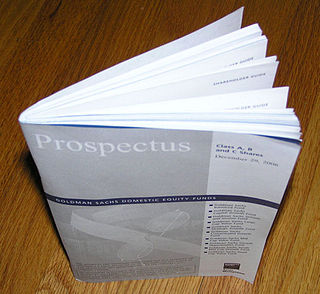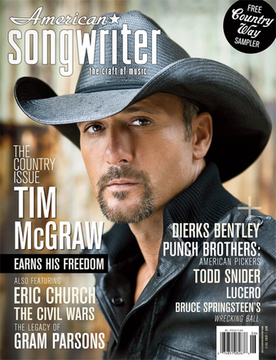
Payola, in the music industry, is the name given to the illegal practice of paying a commercial radio station to play a song without the station disclosing the payment. Under U.S. law, a radio station must disclose songs they were paid to play on the air as sponsored airtime. The number of times the songs are played can influence the perceived popularity of a song, and payola may be used to influence these meters. The Federal Communications Commission (FCC) treats payola as a violation of the Sponsorship Identification Rules, which requires any broadcast of paid material to include a disclosure.

The American Society of Composers, Authors, and Publishers (ASCAP) is an American not-for-profit performance-rights organization (PRO) that collectively licenses the public performance rights of its members' musical works to venues, broadcasters, and digital streaming services.

Publishing is the activity of making information, literature, music, software, and other content available to the public for sale or free of charge. Traditionally, the term refers to the creation and distribution of printed works, such as books, comic books, newspapers, and magazines. With the advent of digital information systems, the scope has expanded to include digital publishing such as e-books, digital magazines, websites, social media, music, and video game publishing.

A songwriter is a person who creates musical compositions or writes lyrics for songs, or both. The writer of the music for a song can be called a composer, although this term tends to be used mainly in the classical music genre and film scoring. A songwriter who mainly writes the lyrics for a song is referred to as a lyricist. The pressure from the music industry to produce popular hits means that song writing is often an activity for which the tasks are distributed among a number of people. For example, a songwriter who excels at writing lyrics might be paired with a songwriter with the task of creating original melodies. Pop songs may be composed by group members from the band or by staff writers – songwriters directly employed by music publishers. Some songwriters serve as their own music publishers, while others have external publishers.
Sheet music is a handwritten or printed form of musical notation that uses musical symbols to indicate the pitches, rhythms, or chords of a song or instrumental musical piece. Like its analogs – printed books or pamphlets in English, Arabic, or other languages – the medium of sheet music typically is paper. However, access to musical notation since the 1980s has included the presentation of musical notation on computer screens and the development of scorewriter computer programs that can notate a song or piece electronically, and, in some cases, "play back" the notated music using a synthesizer or virtual instruments.
The International Standard Musical Work Code (ISWC) is a unique identifier for musical works, similar to ISBN for books. It is adopted as international standard ISO 15707. The ISO subcommittee with responsibility for the standard is TC 46/SC 9.
Cashbox, also known as Cash Box, is an American music industry trade magazine, originally published weekly from July 1942 to November 1996. Ten years after its dissolution, it was revived and continues as Cashbox Magazine, an online magazine with weekly charts and occasional special print issues. In addition to the music industry, the magazine covered the amusement arcade industry, including jukebox machines and arcade games.

The music industry refers to the individuals and organizations that earn money by writing songs and musical compositions, creating and selling recorded music and sheet music, presenting concerts, as well as the organizations that aid, train, represent and supply music creators. Among the many individuals and organizations that operate in the industry are: the songwriters and composers who write songs and musical compositions; the singers, musicians, conductors, and bandleaders who perform the music; the record labels, music publishers, recording studios, music producers, audio engineers, retail and digital music stores, and performance rights organizations who create and sell recorded music and sheet music; and the booking agents, promoters, music venues, road crew, and audio engineers who help organize and sell concerts.

Sony Music Publishing LLC is an American music publisher. Responsible for publishing the largest quantity of music, with over five million songs owned or administered as of end March 2021, it is part of the Sony Music Group, which is itself owned by Sony Entertainment. The company was formed as Sony/ATV in 1995 by the merger of the original incarnation of Sony Music Publishing and ATV Music, which was owned by late entertainer Michael Jackson. Jackson had purchased ATV Music, which included the Lennon–McCartney song catalog, in 1985.

A prospectus, in finance, is a disclosure document that describes a financial security for potential buyers. It commonly provides investors with material information about mutual funds, stocks, bonds and other investments, such as a description of the company's business, financial statements, biographies of officers and directors, detailed information about their compensation, any litigation that is taking place, a list of material properties and any other material information. In the context of an individual securities offering, such as an initial public offering, a prospectus is distributed by underwriters or other financial firms to potential investors. Today, prospectuses are most widely distributed through websites such as EDGAR and its equivalents in other countries.
Wally Wilson, is an American record producer and songwriter music publisher and concert producer based in Nashville.
A style guide is a set of standards for the writing, formatting, and design of documents. A book-length style guide is often called a style manual or a manual of style. A short style guide, typically ranging from several to several dozen pages, is often called a style sheet. The standards documented in a style guide are applicable for either general use, or prescribed use in an individual publication, particular organization, or specific field.
Will Page is a British economist, author, podcaster and DJ. He is the former Chief Economist at streaming music service Spotify, a Fellow of the Royal Society of the Arts, and a Visiting Fellow at the London School of Economics and the Edinburgh Futures Institute.

Tablature is a form of musical notation indicating instrument fingering or the location of the played notes rather than musical pitches.

American Songwriter is a bimonthly magazine covering songwriting. Established in 1984, it features interviews, songwriting tips, news, reviews and lyric contest. The magazine is based in Nashville, Tennessee.

HitQuarters was an international music industry publication and contact database founded in 1999. It was noted for its in-depth interviews with industry figures, as well as its A&R and manager contact directory, free artist promo pages and song sale facility, demo reviews and A&R chart, and was the sister site to the songwriting tip sheet SongQuarters. The site was sporadically active from May 2017 up until September 20, 2020, and no posts have been made on its Twitter and Facebook accounts since March and May 2015 respectively.

Luke Robert Laird is an American country music songwriter and producer. He has written over 20 number one Billboard singles, including Carrie Underwood's "So Small", "Temporary Home", and "Undo It"; Blake Shelton's "Gonna"; Sara Evans' "A Little Bit Stronger"; Rodney Atkins's "Take a Back Road"; Eric Church's "Drink in My Hand", "Give Me Back My Hometown", and "Talladega"; Little Big Town's "Pontoon"; Luke Bryan's "I See You" and "Fast"; Thomas Rhett's "T-Shirt"; Kenny Chesney's "American Kids"; Lady Antebellum's "Downtown"; and Jon Pardi's "Head Over Boots." He has also written and produced songs for Tim McGraw, Rascal Flatts, Kacey Musgraves, Toby Keith, Ne-Yo, John Legend, Darius Rucker, and many others.

Music Connection is a United States–based monthly music trade magazine that began publication in 1977. The magazine caters to career-minded musicians, songwriters, recording artists, and assorted music industry supporting personnel. Initially, the magazine focused solely on the Southern California music scene, but has since expanded to a national distribution. The publication and its website provide information about the music business, including directories of contact information for professionals and free classifieds for musicians. Music Connection also publishes reviews of unsigned and independent live performers and recording artists. Several acclaimed artists achieved their first music magazine cover status from Music Connection including Guns N' Roses, Madonna, Jane's Addiction, Alanis Morissette, The White Stripes, and Adele.
MusicRow is a Nashville music industry trade publication. The publication delivers online content in addition to six annual print magazines including its InCharge, Artist Roster and Publisher directories. MusicRow Enterprises is also home to song pitch-sheet RowFax, and the MusicRow radio chart.

Predatory publishing, also write-only publishing or deceptive publishing, is an exploitative academic publishing business model, where the journal or publisher prioritizes self-interest at the expense of scholarship. It is characterized by misleading information, deviates from the standard peer-review process, is highly non-transparent, and often utilizes aggressive solicitation practices.













